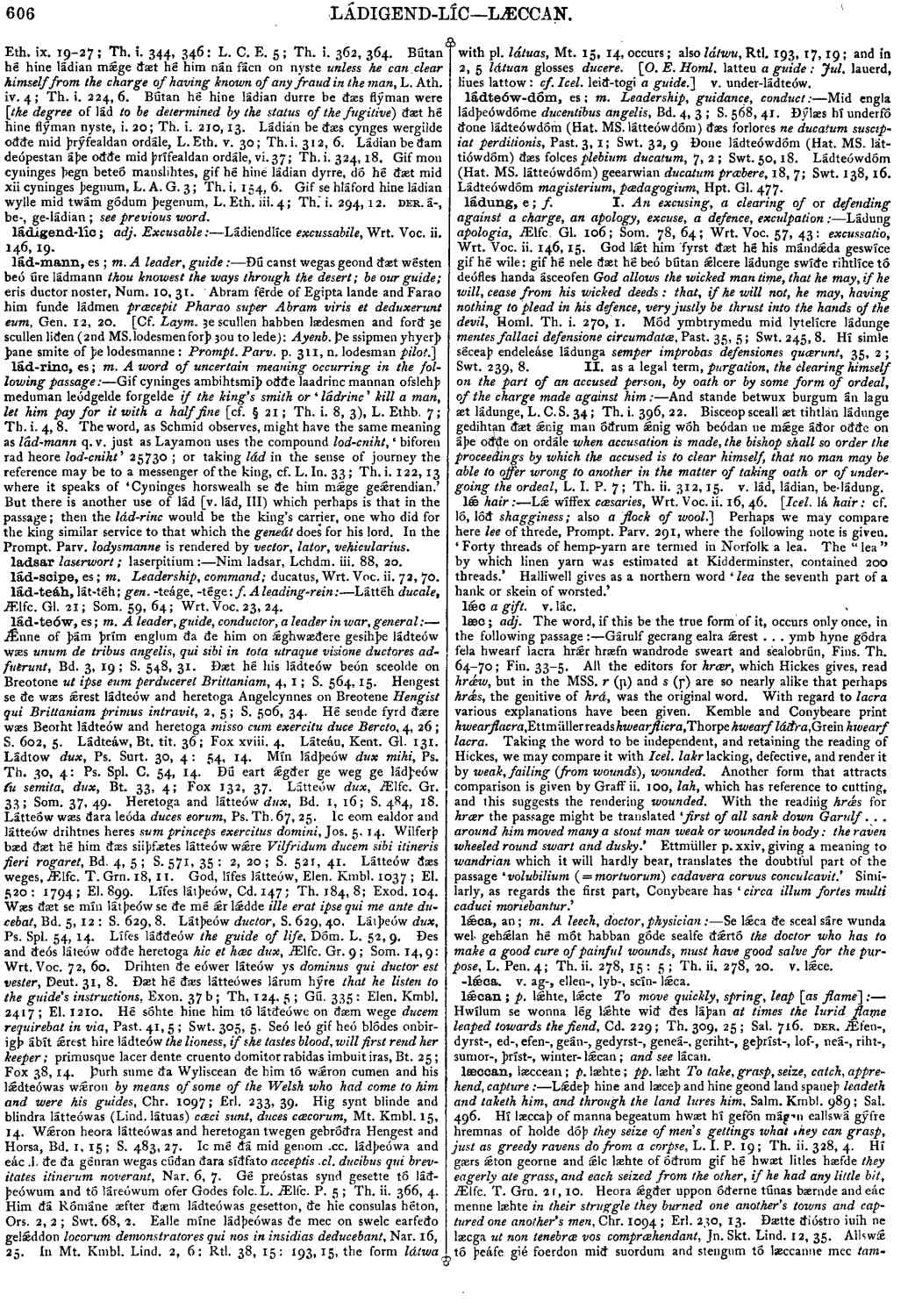læc
- adjective
-
Gárulf gecrang ealra ǽrest ... ymb hyne gódra fela hwearf lacra hrǽr hræfn wandrode sweart and sealobrún,
- Fins. Th. 64-70 ;
- Fin. 33-5.
- All the editors for hrær, which Hickes gives, read hrǽw, but in the MSS. r (η) and s (Γ) are so nearly alike that perhaps hrǽs, the genitive of hrá, was the original word. With regard to lacra various explanations have been given. Kemble and Conybeare print hwearflacra, Ettmüller reads hwearflicra, Thorpe hwearf láðra, Grein hwearf lacra. Taking the word to be independent, and retaining the reading of Hickes, we may compare it with Icel. lakr lacking, defective, and render it by weak, failing (from wounds), wounded. Another form that attracts comparison is given by Graff ii. 200, lah, which has reference to cutting, and this suggests the rendering wounded. With the reading hrǽs for hrær the passage might be translated 'first of all sank down Garulf ... around him moved many a stout man weak or wounded in body: the raven wheeled round swart and dusky.' Ettmüller p, xxiv, giving a meaning to wandrian which it will hardly bear, translates the doubtful part of the passage 'volubilium ( = mortuorum) cadavera corvus conculcavit.' Similarly, as regards the first part, Conybeare has 'circa illum fortes multi caduci moriebantur.'
Bosworth, Joseph. “læc.” In An Anglo-Saxon Dictionary Online, edited by Thomas Northcote Toller, Christ Sean, and Ondřej Tichy. Prague: Faculty of Arts, Charles University, 2014. https://bosworthtoller.com/20904.
Checked: 1